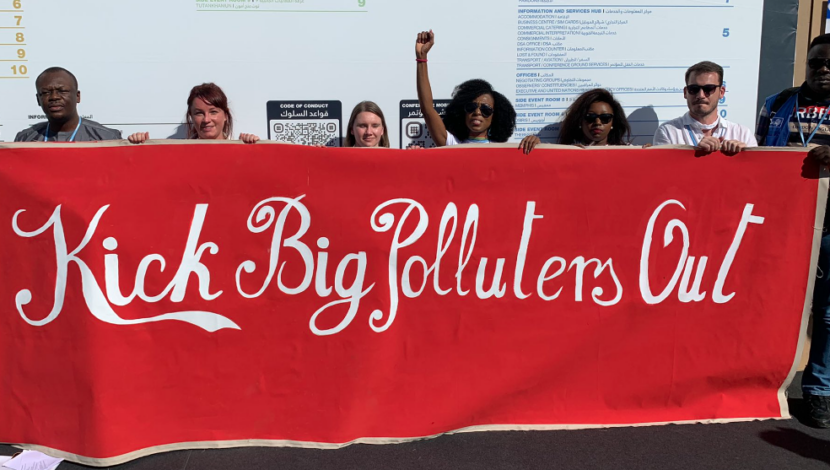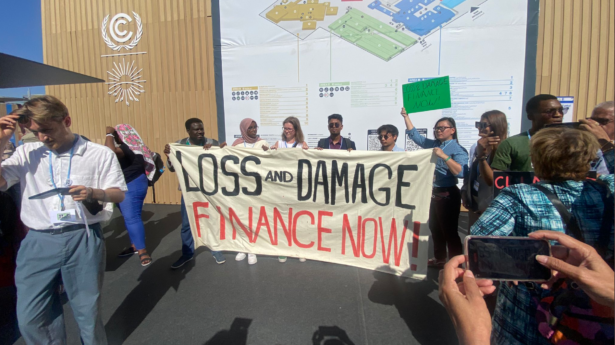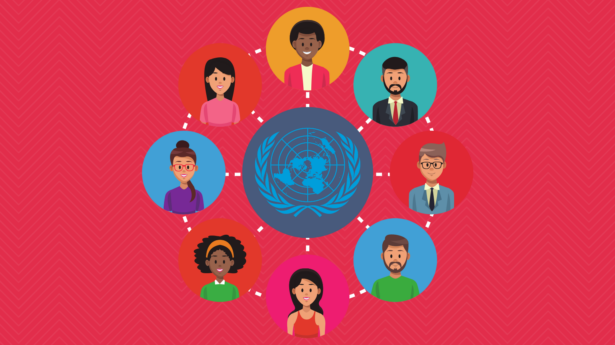The Unitarian Universalist Service Committee advances human rights through grassroots collaborations.
U.S. COP Commitments: Real Solutions or More Greenwashing?

By UUSC Staff on November 16, 2022
With his appearance at the annual United Nations (UN) climate conference, COP27, President Biden unveiled a raft of new commitments with some encouragingly large numbers attached: the United States will double its pledge to the UN’s climate adaptation fund to $100 million, Biden announced, while introducing a host of new initiatives to promote a clean energy transition.
It all sounds positive—but with rich countries’ climate pledges, as with so many things, it helps to read the fine print. The details that have emerged in recent days as to how the United States intends to deliver its climate financing are deeply troubling. And the language of Biden’s pledge conspicuously avoids the most urgent and pressing demand from frontline communities: fair compensation for the loss and damage they have sustained from climate change.
The UN’s climate gathering this year opened with a clear demand from our partners for wealthier nations to pay for the costs of climate destruction. The moral reason is simple: rich countries have profited the most from greenhouse gas emissions, whereas lower-income Global South nations have contributed the least to the problem, while facing the worst of its consequences. It is only fair that wealthier countries should compensate for the effects of their pollution.
And there were encouraging signs at this year’s COP that some rich countries are beginning to see the force of this argument. Some European leaders at the conference declared their intent to provide loss and damage funding. These and similar developments are a clear sign that our partners’ and other frontline communities’ decades of advocacy are having an impact, even in a forum as stacked in favor of wealthy and powerful interests as COP.
The United States, however—which has historically been the planet’s worst greenhouse gas emitter and has repeatedly stymied talks about loss and damage in the past—made no such commitment. Although U.S. delegates signaled a vague willingness to put loss and damage on the agenda, they deliberately avoided making any overt commitments to compensate for climate destruction.
Meanwhile, the U.S. delegation’s own proposals for how to deliver climate financing are a wild departure from our partners’ demands. The most just, logical, and administrable way of supporting countries impacted by climate change, of course, would be to provide direct grants to the people most affected. This is what delegates from Indigenous and frontline communities have been demanding at COP. But instead of this common sense solution, the U.S. is promoting a “carbon credit” scheme, which is poised to enrich corporate actors without delivering funds to the communities actually suffering.
Full details of the U.S. proposal are not yet public, but the New York Times obtained a draft outline containing its core elements. It amounts to a variation of previous “carbon offset” schemes that the UN has tried in the past. The idea is to create a global market in carbon credits, whereby companies (largely in the heavily-polluting North) can “offset” their emissions by paying for clean energy in the Global South. In theory, this enables even polluting companies to reach a “net-zero” carbon impact, because each incremental increase in emissions is compensated by an equivalent use of renewables elsewhere.
The only problem is: This scheme has never worked in practice. Experience from prior versions of carbon trading suggests that pollution-intensive companies primarily use them as a license to keep pumping planet-warming fuels, while corrupt corporate and state actors market low-quality projects for “carbon credits,” even when they actually harm the environment or interfere with land rights (such as palm oil plantations). Whenever it’s been tried, in short, carbon trading has proven to be a false solution that enables abuse, corruption, and human rights violations against Indigenous people.
To be sure, the U.S.’s latest proposal has a few added guardrails to prevent the most flagrant of these abuses (for instance, fossil fuel companies would not be allowed to participate). But it still suffers the same fundamental defect as prior approaches, because it seeks to offset continuing pollution instead of keeping dirty energy sources in the ground.
Our partners’ and other frontline communities’ proposed solutions, by contrast, are far more straightforward: stop burning fossil fuels, relieve Global South countries of debt, and provide direct grants to affected communities. These approaches would also be far more effective in mitigating the climate crisis and preventing future ecological destruction. But when Indigenous representatives at COP27 brought these demands and protested against the U.S.’s carbon trading proposals as “false solutions,” they were branded a security threat, and their accreditation to attend the conference was revoked.
If the world is going to make any genuine progress toward addressing climate change, it has to honor rather than exclude the voices of the people most affected by the crisis. Real solutions are not going to come from centering the voices and self-interest of the governments and corporations most responsible for causing climate change in the first place. They can only come from the leadership of frontline communities.
Image Credit: Corporate Accountability

